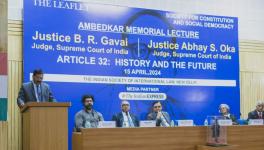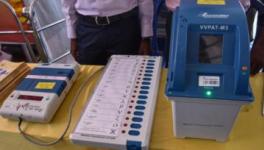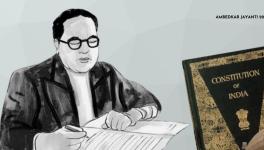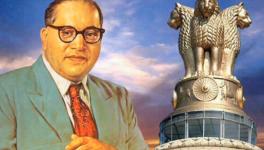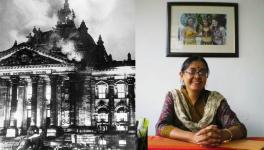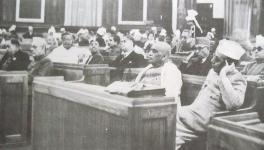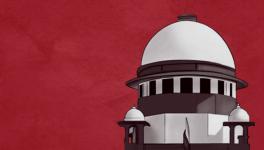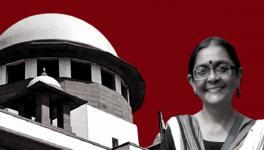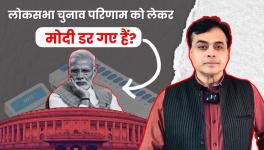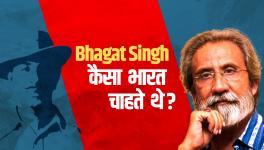In Marriage Equality Case, Queer and Trans Persons Assert Right to Define Family
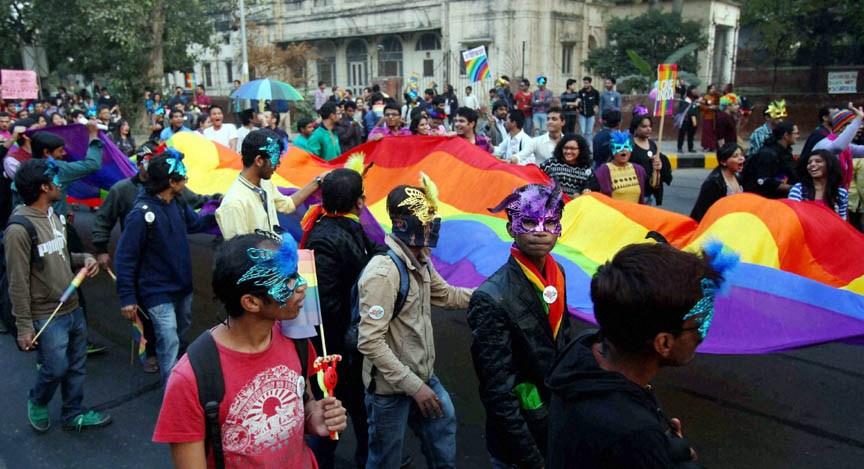
On the very first day of the ongoing hearing of the marriage equality petitions in the Supreme Court of India, Solicitor General Tushar Mehta opposed the petitions on behalf of the Union government, saying marriage has always been between a “biological man and a biological woman”, even under the Special Marriage Act. Senior Advocate Rakesh Dwivedi, appearing for one of the parties opposing the petitions, cited the Rig Veda and Manusmriti and argued that the core purpose of a heterosexual union is to perpetuate the human race. “Same-sex unions have always existed, but they were not given equality at par with heterosexual couples. They were never treated equally,” he said.
Therein lies the crux of the opposition to not just queer and trans persons but to many others in our society, growingly reflected by the State. When India was imagined, and the Constitution was being drafted, Dr BR Ambedkar and many others worked to introduce the idea of equality for all Indian citizens. Even then, many opposed this thought. This predominantly Hindu society has always been hierarchical, with caste as its bedrock. Again and again, we need to underline that caste is at the base of our understanding of social life, through which we constantly perpetuate notions of superiority and inferiority. And in this understanding, existence is accepted, but not equality.
The understanding of the family in this system is as an institution based on procreation solely to maintain caste purity. In this family, the man is the head of the household, its owner, and the daughter is given away in marriage as daan, and she becomes the reproducer who must maintain caste—and religious—purity. This is, of course, applicable in the dominant castes. It is their purity, Brahmanical purity, that this caste and gender system must maintain. Thus, control over marriage is an essential part of this “sanskar”, and this view of marriage is the most prevalent. This same system, which perpetuates caste, also perpetuates male control over women and translates into inequality between the parent and the child, who must be controlled to maintain the system.
In the petitions in this case, queer and trans people are asserting their right to choose a family—who they live with and how. A marriage equality petition, when articulated by queer and trans persons, differs from the imagination of marriage as monogamous coupledom for procreation. On the face of it, queer and trans persons are articulating their right to be with the person of their choice in a manner legible and acceptable today. But even within this narrow imagination of marriage as coupledom, trans or queer people want to be able to be together, not to perpetuate the family as is, but to seek acceptance of their relationships of care, companionship, desire and a life together. Of course, many queer and trans persons may want to reproduce and maintain the purity of the stock. After all, they, too, belong to the same caste-ridden and inequality-riddled society. Nevertheless, by itself, the demand for marriage equality challenges the notion of family by procreation and hence the genealogical system of perpetrating caste and religious structures.
However, our petition, one of the many before the Supreme Court, makes a somewhat different demand. The main ground from which we come to the question of marriage equality is the violence in the family that we are born or adopted into—our assigned family. We have all heard innumerable instances of two queer or trans people fleeing their families together. The media tells us they ran away because they are in love and want to be with their partner. It is often the case, but one more reality exists, which is invisible and seldom discussed: The simple fact that they are running away from very violent and difficult situations. For trans and queer people, we can say with certainty that many are forced to run away from families, alone or with their partners, because of tremendous violence at home. They face stigma, neglect, humiliation, and indignity at home—the family sees them as degrading, dirty, and impure, which they cannot handle—to be in a relationship that does not have this violence.
A queer or trans person walking out of an abusive home and their effort to find and form living bonds with others is the assertion of the self-determination of their gender, their desire and their right to choose a family that will understand, respect, and let them become who they are.
When a queer or trans person finds a partner, they feel attracted to and desire and love them. But this love also becomes their support to run away from the home that abuses them. How can an individual fight family, familial norms, and a community that perpetrates violence against them without support? Economic independence and education may be in a person’s interest in such situations. But, sensing this, families cut off education the moment they see something they regard as deviant behaviour. They forcibly marry off these “deviant” children, and if they get beaten in their married homes, they are told they deserve it because of who they are. They are most interested in making their family member ‘fit’ the usual script of what is acceptable.
And so the issue is about more than choosing a partner. It is about their right to determine their gender, desire, and family of choice. In the heterosexual family system, to varying degrees, there is a high likelihood of violence and punishment against most queer and trans persons. Abuse is almost guaranteed. Sometimes it is violent and brutal, and even when it is not, there is a general dismissal of their life and constant humiliation. And when they have nobody to turn to, all this feels much worse. If they remain with their birth family, they could be forcibly married off, and we would never know what happened to them.
Some fathers write Op-Eds in newspapers about having accepted their queer child, and these accounts are powerful, but can we also acknowledge those articles and reports in which an adult child says, ‘My father wants to kill me, and I had to disappear from his life to save mine’? They can never let the parents know where they are since that could lead to almost certain death. These are also stories about a father and a child in contemporary India. Much work has been done to highlight this issue, but it is not yet visible enough in public discourse. A new report based on a Jan Sunwai on this issue, published on Monday, describes what queer and trans persons from different parts of the country, from different castes, classes, age groups and locations, testified before a panel.
Thus, our petition is about the reality of a violent non-accepting family, of the kind that exists in abundance in our country, which wants to ‘reform’ us, ‘convert’ us and force us into heteronormative marriages. Families are prepared to kill their children, beat them up, and rape them to enforce normativity. This is why we approach the court from the prism of violence in the natal family. One of our pleas is that every person—queer, trans, cis, heterosexual—must be able to assert their right to be with whomever they choose.
If the Indian State recognises that queer and trans persons exist, it must enable their choices, including not wanting the family they were born in. Put another way, if I want to create my own family—which I may not imagine as just a married couple—then who can protect me except the State which recognises that I exist?
Indeed, some of us may choose marriage, but there are many other ways of being a family. Do heterosexual single people not live in ways their families find unacceptable? What we are raising is a fundamental question for all of society—who is the family? We say a family cannot be limited only to marriage or the one assigned at birth. We want the family to expand so that when I am in a conflict or difficulty, the State does not force me back to those I am trying to escape. At the same time, it is vital for the State and its mechanisms to recognise and respect those I choose to have in my life.
Another crucial protection we seek through our petition is the recognition that relationships can be outside several prevalent norms. At one level, we come to the marriage debate from the point of view of seeing it also as a safety net. A marriage certificate with my non-cis/het partner may help me survive. If the law says I can be in this marriage of my choosing and not forced out of it or into another (as I am today), I can emerge from the experience alive. At the same time, we know not every queer and trans person is keen to marry, so the question for us is—how does the State protect them? A sufficient protection would be to add one more layer of safety: At any stage of life, once I am an adult, I should be able to say who my family is.
Many of these situations are not unique to queer and trans people, but the queer and trans perspective and responses will help understand them and find different answers. After all, we all live in an India where we must keep reminding ourselves and the State that we are not governed by Hindu tradition or convention but by a Constitution that gives us the right to a life with dignity!
The author is a queer activist, feminist, researcher and one of the petitioners in the ongoing ‘marriage equality’ case being heard in the Supreme Court. The views are personal. (As told to Pragya Singh)
Get the latest reports & analysis with people's perspective on Protests, movements & deep analytical videos, discussions of the current affairs in your Telegram app. Subscribe to NewsClick's Telegram channel & get Real-Time updates on stories, as they get published on our website.









